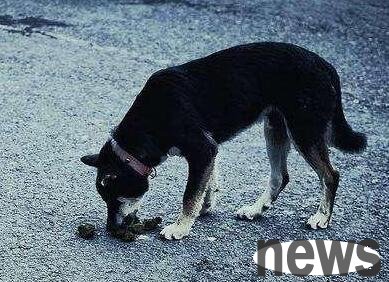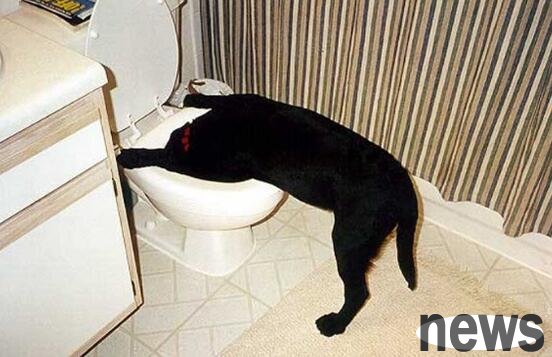There are a few common sayings that describe several interesting phenomena, such as describing the words "dogs cannot change their food" that have been taught repeatedly, and for example, describing the words "wolf travels for thousands of miles and dogs travels for thousands of miles" that are difficult to change their nature. Since a slightly uncomfortable word will appear in this article throughout, we will use "poop" instead. (Hey, is there no discomfort like this?)
The first question that needs to be discussed is of course whether the dog eats poop? The answer is yes. I believe many friends have also witnessed the process of dogs enjoying "food" with relish. Dogs eat poop, some eat their own, some eat other dogs, some eat people and other animals, and some eat people without rejection, and eat both soft and hard. (That's right, it's the soft and hard you think!)

Why do dogs eat poop? There are many reasons.
Usually, eating poop is a normal physiological behavior. For example, mothers who have just given birth will lick their anus after their children are exhausted and eat their poop to prevent other animals from hunting puppies that have not been weaned by the smell. Adult dogs may also eat poop to remove traces of themselves if they feel threatened. Some owners blame or corporal punishment for the dog after defecate anywhere, so the dog eats its poop to avoid being discovered by the owner.
In addition, people often exclaim when they see a dog eating poop and call others to see it, which gives the dog a high-profile feeling, so it may choose this method when it wants to attract the attention of its owner. Some dogs are used to eating two or three meals a day, but suddenly change to one meal a day due to changing owners and other reasons, so the dog will eat and poop to relieve hunger.
The undigested and absorbed completely nutrients in the poop is also a great temptation for dogs. For example, herbivores often contain some vitamins and trace elements that dogs lack, and dogs will supplement their nutrition by swallowing the poop. "Where is the fragrance of rice without the smell of manure?" Animal poop consists of food residues, digestive fluid, intestinal cells, microorganisms, etc., and contains various nutrients. It has been regarded as valuable farmland fertilizer for thousands of years. It is said that "fertility and water do not flow from outsiders to the fields." In the poop of common animals such as chickens, cattle, pigs, rabbits, etc., it contains protein, cellulose, fat, calcium, phosphorus and various amino acids, as well as essential nutrients for animals such as vitamin A, vitamin B, vitamin K, and linoleic acid.
In our laboratory animal room, dogs only eat their own and other dogs, or rabbits, and are not interested in rats. Although as the nutritional ratio of dog food becomes increasingly balanced and reasonable, eating poop is no longer a necessity for survival, many pet dogs have retained their ancestors' habit of being thrifty.
In addition, some diseases can also aggravate the occurrence of dogs' appetite for poop. For example, pancreatitis, parasites in the gastrointestinal tract, imbalance in the intestinal flora, diabetes, etc., the application of certain drugs such as barbiturate, progesterone, and steroids will also cause such results. However, judging from the discussions in pet forums at home and abroad, lack of nutrients and punishment for urination and drowning in childhood should be the main reasons for domestic dogs eating poop.

The one who eats poop is not just a dog~
"Wolfs eat meat when traveling for thousands of miles, and dogs eat shit when traveling for thousands of miles". This statement is actually wrong. Not just wolves, but also members of the canine family, foxes, coyotes, jackals, etc., will eat small amounts of poop. Even when jackals hunt, they will attack the buttocks of large herbivores, grab and bite the ground and take out the intestinal duct of prey from the anus, and eat the poop in the intestinal duct together.
In fact, there are many animals in nature who eat poop. Needless to say, insects such as dung beetles and flies that use the poop of large mammals as a delicious meal all year round. Termites take the poop of the queen to maintain the balance of intestinal microbial flora. Similarly, animals such as elephants, pandas, koalas, hippos, etc. will eat their mother's poop to supplement intestinal microorganisms when they are young.
The animals that make full use of the nutrients that are not absorbed in the poop are not only the canine families. Pigs will eat their own and other animals to absorb the incomplete digestion of nutrients. Many herders use chicken manure that contains more protein and is cheap to feed cows. South American capybara, hamsters, chinchillas, guinea pigs, gorillas, and chimpanzees will "chase" nutrients that have escaped during the first digestion and absorption by eating their poop.
Many people who have raised rabbits have also noticed that rabbits will discharge a kind of wet and soft feces, and most rabbits will eat this poop as soon as possible. This is because rabbits are monogastric herbivores, and do not have the rumen like cattle to "raise" microorganisms to help digestion. After a long-term evolutionary process, rabbits have a developed cecum, which has a function similar to the rumen. Food is decomposed by microorganisms in the cecum and converted into absorbable nutrients, and is excreted in the form of "cecal stool". Rabbits obtain nutrients by eating cecum. Therefore, most hares and domestic rabbits have been eating feces since childhood.
Therefore, eating poop is not only a nature of dogs, but also a "nature" shared by many animals. Even humans are not without poop. From the yellow, night sand, moon-looking sand in the medicinal store, to white lilac, five spirit steak, and chicken arrow white, all of which are.
